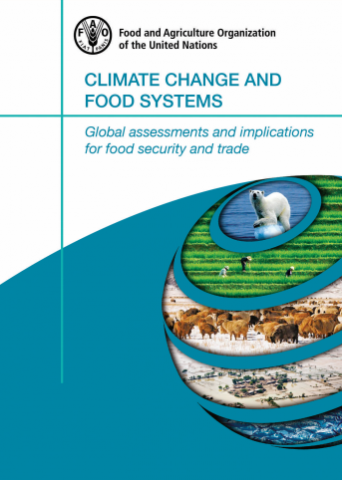Climate change and food systems: global assessments and implications for food security and trade


This book collects the findings of a group of scientists and economists who have taken stock of climate change impacts on food and agriculture at global and regional levels over the past two decades. The evidence presented describes how global warming will impact where and how food is produced and discusses the significant consequences for food security, health and nutrition, water scarcity and climate adaptation. The book also highlights the implications for global food trade.
The evidence presented in the book is presented in a way that is widely accessible to policy decision makers and practitioners and makes a distinct contribution towards a greater science-policy interchange. Put together, the different analyses in the book paint a comprehensive perspective linking climate change to food, nutrition, water, and trade along with suggested policy responses.
FAO, 2015
Climate change and food systems: global assessments and implications for food security and trade
http://www.fao.org/3/a-i4332e.pdf
